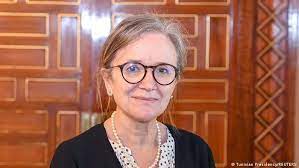The unknown academic who is to form Tunisia’s next government and deal with national emergencies such as the economy and finance was how journalist Frida Dahmani described the man who would be the country’s next prime minister.
By Ibrahima Dione
Why did President Kaïs Saïd appoint a woman, Najla Bouden, to form the future government in Tunisia?
By appointing Najla Bouden, an academic unknown to the general public, to form a new government, Kais Said surprised everyone.
Nobody, neither in Tunisia nor abroad, expected this from him.
The appointment comes at a time when certain circles within Tunisian opinion were beginning to doubt the convictions of the head of state concerning the place of women in Tunisian society, their emancipation and rights.
They feared that he would be tempted to touch the achievements of Tunisian women since independence.
In other words, this appointment is, in principle, good news for many Tunisians who are sensitive to the cause of women.
The first Arab country to have abolished polygamy and replaced repudiation with the right to divorce thus becomes the first in the region to have a woman as head of government.
Who is Najila Bouden?
Najla Bouden is a university professor. a well-known and respected figure in the world of academics and research.
Trained at the Ecole des Mines in Paris, she taught in Tunisia.
Since 2015, she has been in charge of piloting the programme on the employability of Tunisian university graduates on behalf of the World Bank.
Bouden is apolitical. Her profile was perhaps proposed to the president because he himself is a former academic.
What is her main mission?
Since the end of July, Tunisia has been governed by exceptional measures, following the head of state’s decision to sack the prime minister, freeze the work of parliament and lift the immunity of deputies, while arrogating himself almost all powers.
By not specifying the title under which Najla Bouden is designated, the Presidency’s communiqué does not indicate whether she will be a head of government in the real sense of the term or a simple Prime Minister.
The first title would give her more room to manoeuvre.
A head of government is supposed to work directly with parliament.
However, the activities of the Tunisian parliament are still frozen.
For the time being, it seems more likely that the president will lead the government, especially since he has already failed with three heads of government.
Bouden will have no difficulty in forming her government.
The country has great skills.
The question to be asked at this stage is whether Najla Bouden’s opinions will influence the major decisions on which the next government is expected to decide.
Tunisia’s emergency issues are the economy and finance, areas where it does not have proven expertise.
ID/los/lb/as/APA


